

10:00 pm IST - 11:30 pm IST
Past Event
Content from the Brookings Institution India Center is now archived. After seven years of an impactful partnership, as of September 11, 2020, Brookings India is now the Centre for Social and Economic Progress, an independent public policy institution based in India.
Brookings India hosted Assistant U.S. Secretary of State, Charles Rivkin for a by-invite-only roundtable on Clean Energy/Clean Technology in India. The discussions were under Chatham House Rules (non-attribution). Joining from the U.S. in addition to Secy. Rivkin and his team were industry leaders through the U.S.-India Business Council, as well as Indian government, industry and scholarly leaders in both clean technology and the financial/banking sectors. The discussion was moderated by Rahul Tongia, Fellow at Brookings India, and chaired by Rakesh Mohan, Distinguished Fellow with Brookings India.
India has ambitious targets for renewable energy (to reach 175 GW of capacity by 2022), which were announced unilaterally and well before any commitments made for Paris COP21, through the INDCs (Intended Nationally Determined Contributions), for mitigating GreenHouse Gas (GHG) emissions. For such a large growth, from about 40 GW of capacity today, one of the key needs is for finance – the overwhelming investment in clean technology has come from the private sector, and is likely to remain so.
The U.S. and India already have significant engagements on clean-technology, ranging from RD&D (Research, Development, and Deployment), joint programmes to the Clean Energy Finance Forum (CEFF), to the government level Task Force for the same. One of the discussions at the roundtable was to synergise CEFF’s efforts with the Task Force to help India scale up its ambitious renewable energy (RE) plans.
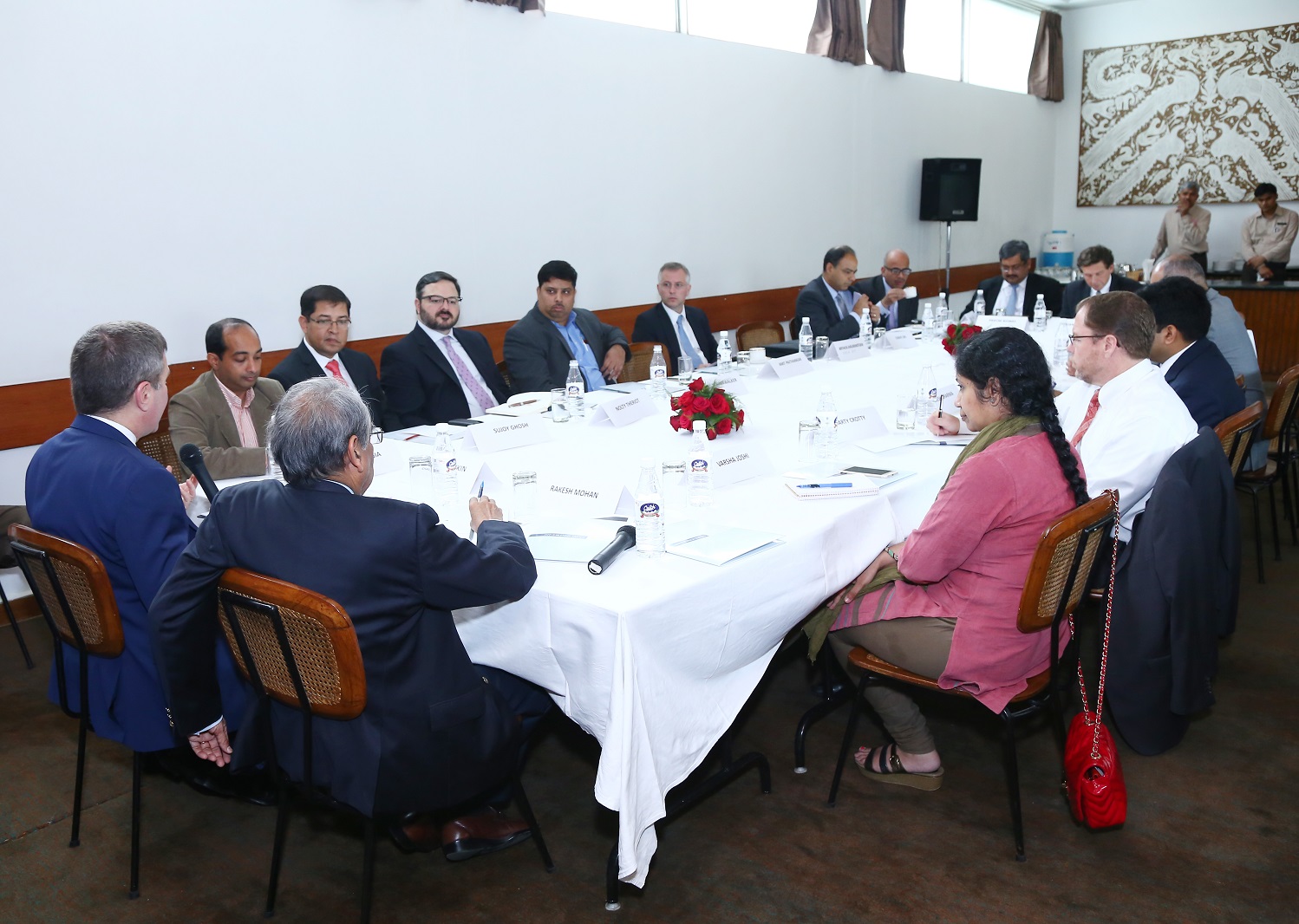
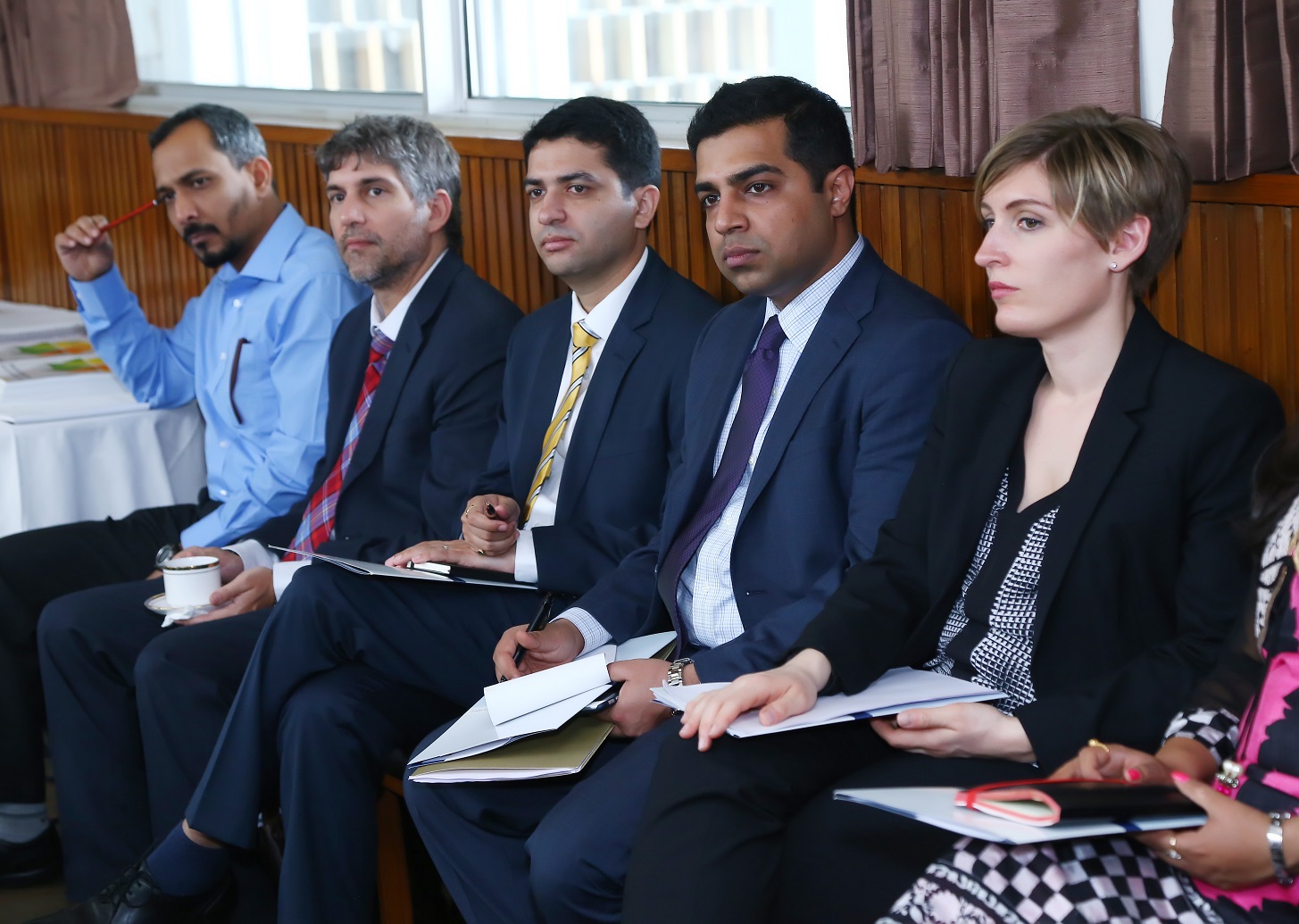
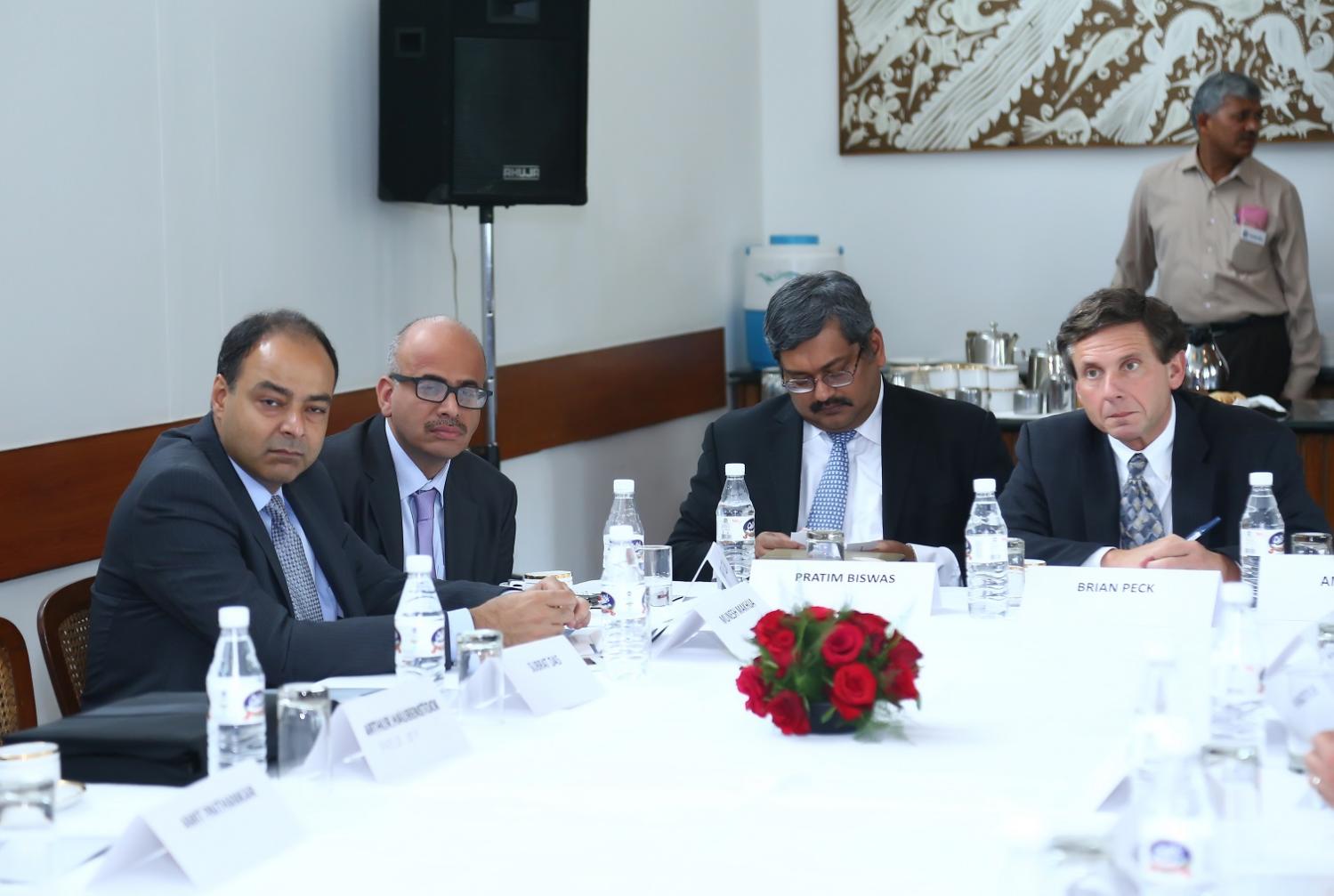
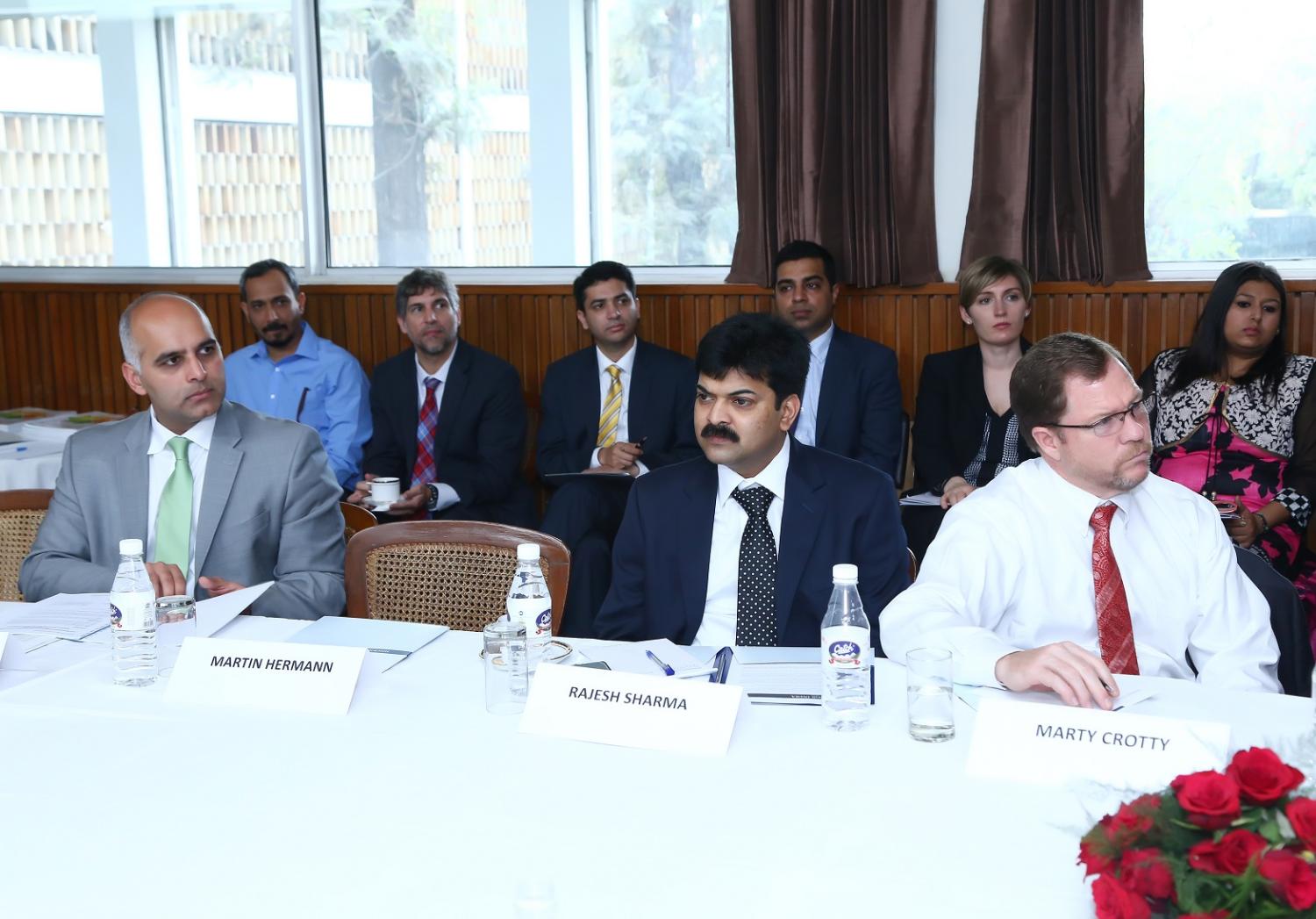
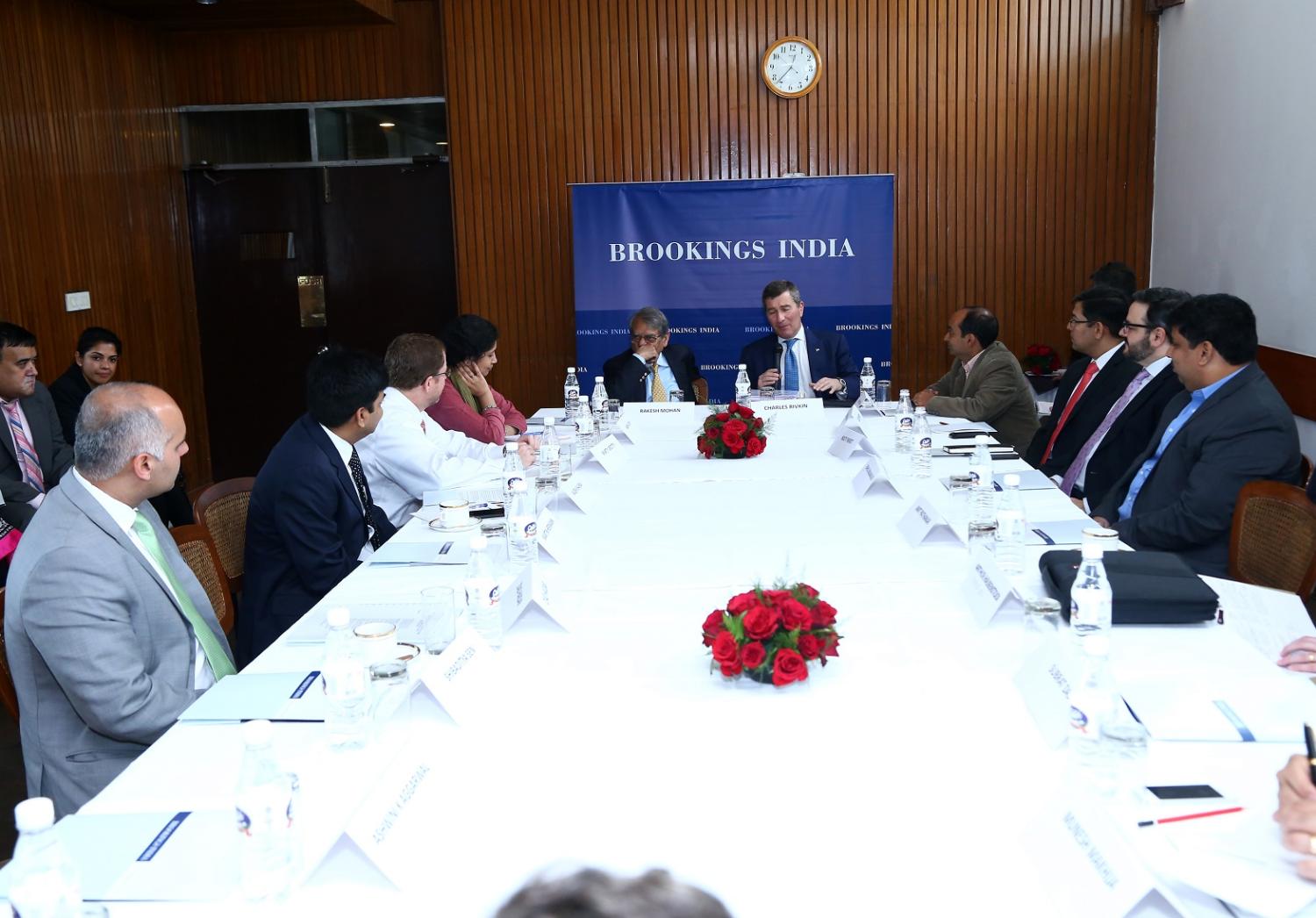
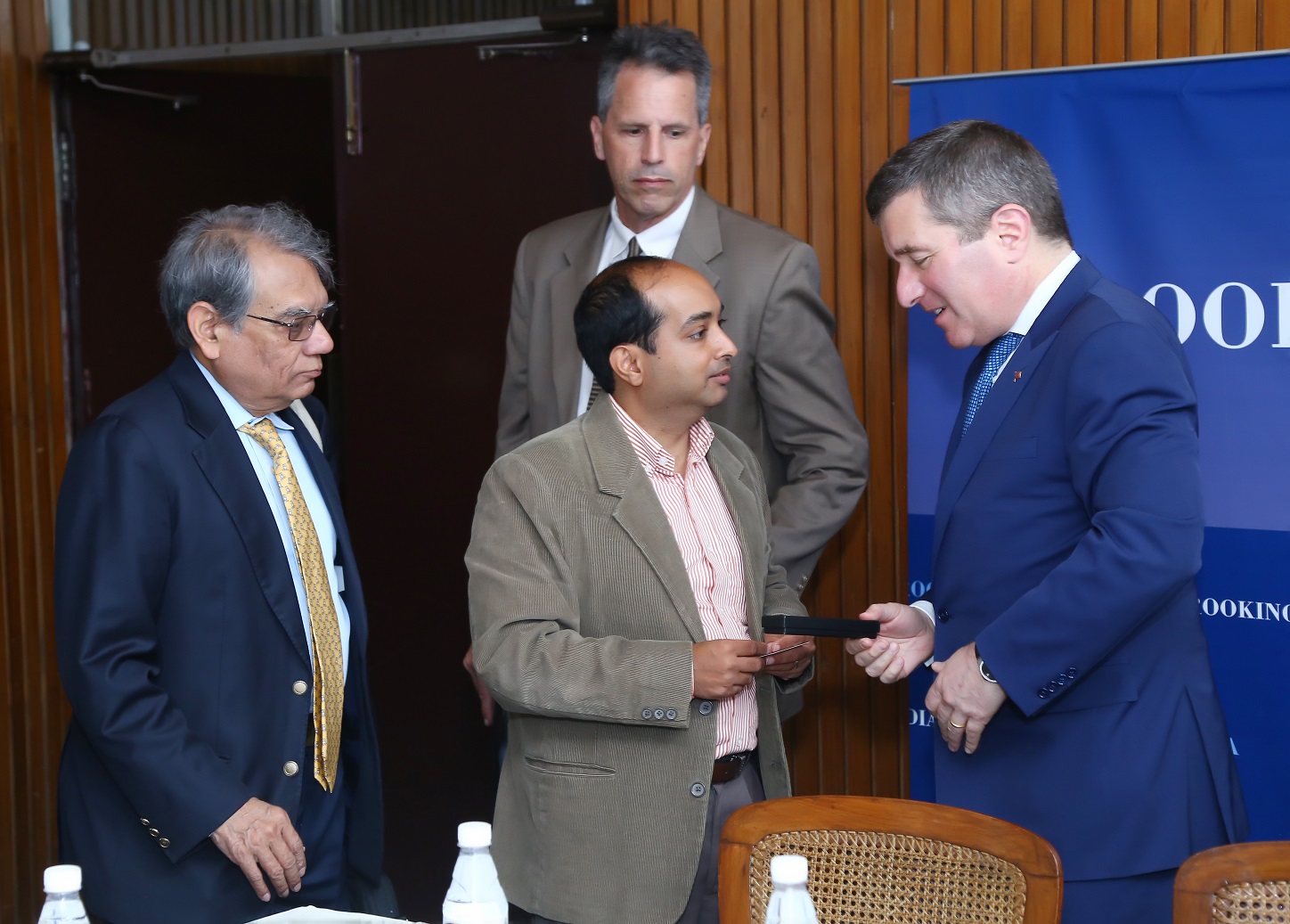
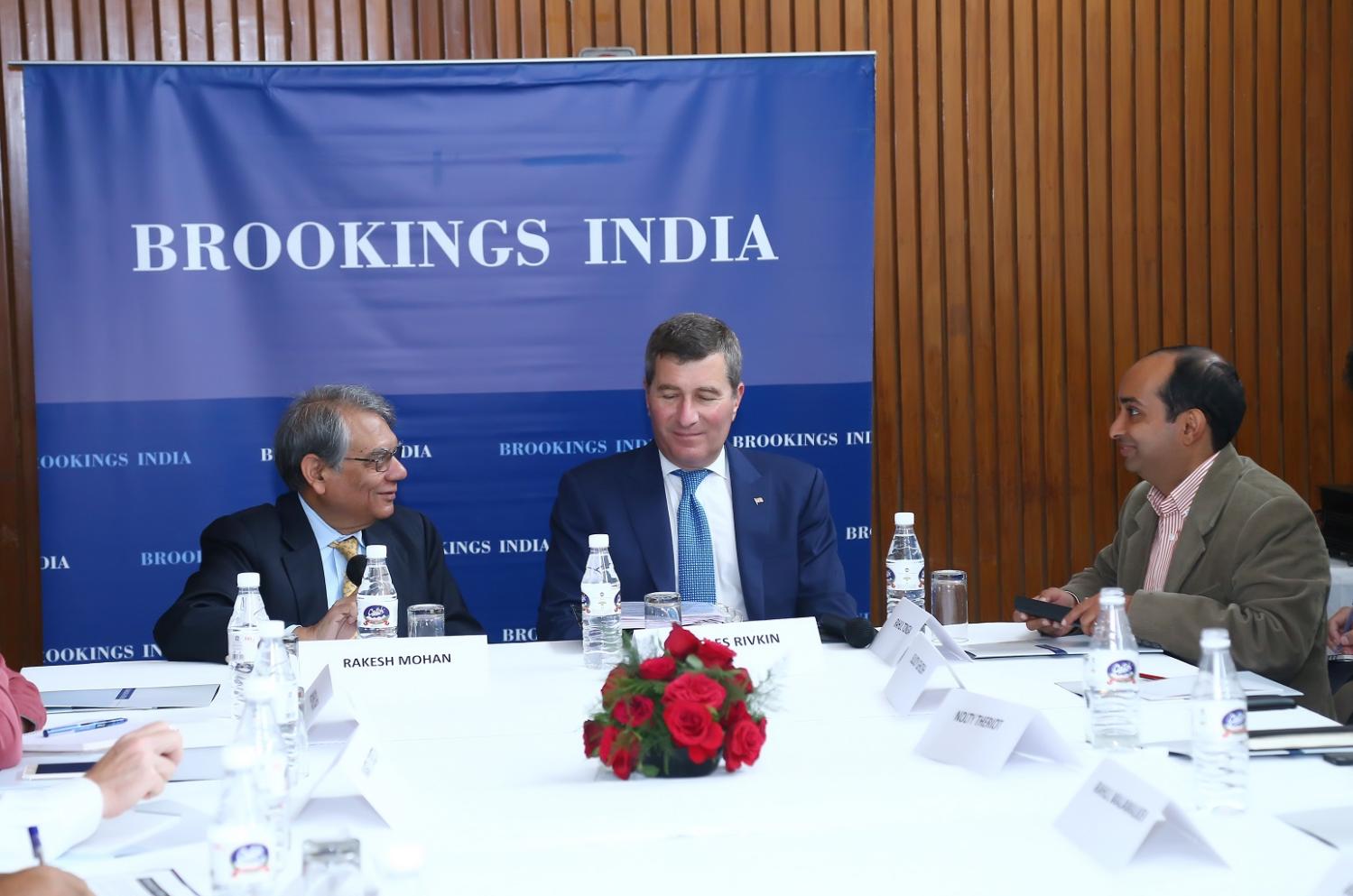
In addition to discussions on programmes and institutions, the following four points were highlighted:
Mr Charles H. Rivkin began serving as Assistant Secretary of State for Economic and Business Affairs on February 13, 2014. He leads a bureau at the U.S. State Department that is responsible for managing trade negotiations, investment treaties, economic sanctions, transportation affairs, telecommunications policy, international finance and development related issues, as well as intellectual property right protection. Prior to his appointment, Mr Rivkin served for more than four years as the U.S. Ambassador to France and Monaco. He is part of a team of business leaders at the State Department who were brought in to support Secretary Kerry’s mandate that ‘economic policy is foreign policy.’
Like other products of the Brookings Institution India Center, this report is intended to contribute to discussion and stimulate debate on important issues. Brookings India does not hold any institutional views.

Rahul Tongia, Anurag Sehgal, Puneet Kamboj
2020
Online Only
3:00 am - 4:40 am IST

Saneet Chakradeo
August 18, 2020